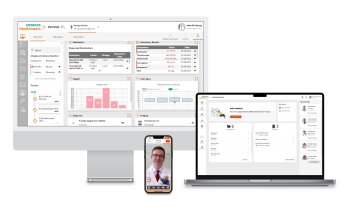ResearchGATE: the first social network for researchers
Moving towards Science 2.0
Despite the importance of networking and interaction between researchers and scientists no social networking platform dedicated to researchers existed before ResearchGATE (www.researchgate.net) went online. Designed to facilitate efficient peer-to-peer contact, this network allows researchers to post their profiles, a CV, publication list and research skills. On behalf of European Hospital, Dr Sönke Bartling, a researcher at the German Cancer Research Centre, Heidelberg, and advocate of Science 2.0, interviewed Dr Ijad Madisch,
co-founder of ResearchGATE, about the concept and benefits of this social network

What singles ResearchGATE out compared to, for example, using Facebook for social networking?
Dr. Madisch: It’s a social network tool adapted to a researcher’s needs, i.e. optimized to present yourself in
the context of your research. ResearchGATE enables you to get in touch with colleagues internationally; to stay informed about their actual projects and latest publications, as well as their contact information and the literature they read. We want to combine various Science 2.0 applications in order to create a unique collaborative environment.
ResearchGATE can initiate and foster collaboration among researchers in different ways; the platform is increasing efficacy, inter-disciplinary and economic way of collaboration. Through our search engine you can find a researcher specialized in specific fields, so it’s easy to find someone who may be a big help. Just search for their research skills. Given the importance of collaboration for researchers we developed a new application: REstoRY (Research Storage History) – a smart file and data sharing application. Several other features are already available. However, driven by ideas and feedback of the scientific community we are continuously developing new applications tailored to researcher’s needs.
What is Science 2.0?
We have all heard about this evolution - some people call it revolution – within the internet widely known as Web 2.0. Let us take encyclopaedias. For decades they were hardcovers on the bookshelf, then followed a static online version. Finally encyclopaedias were revolutionized by Wikipedia. Within science – and especially publication within science – we are currently in the static online stage. Science and scientific publication almost completely lacks modern concepts that Web 2.0 offers, which will change through Science 2.0. This is already happening, old fashioned lab notebooks have given way to Wikis, and the amount of open access journals is increasing. Nobody knows how science in the future will look – but with ResearchGATE we want to support that change. ResearchGATE is a part of the Science 2.0 community and will evolve with the community from scientists for scientists.
01.07.2008










